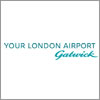London Gatwick calls on Airports Commission to promote competition, improve rail services and focus on resilience
- Like
- Digg
- Del
- Tumblr
- VKontakte
- Buffer
- Love This
- Odnoklassniki
- Meneame
- Blogger
- Amazon
- Yahoo Mail
- Gmail
- AOL
- Newsvine
- HackerNews
- Evernote
- MySpace
- Mail.ru
- Viadeo
- Line
- Comments
- Yummly
- SMS
- Viber
- Telegram
- Subscribe
- Skype
- Facebook Messenger
- Kakao
- LiveJournal
- Yammer
- Edgar
- Fintel
- Mix
- Instapaper
- Copy Link
Posted: 16 May 2013 | Gatwick Airport | No comments yet
Response to the Airports Commission…


London Gatwick Airport has submitted its response to the Airports Commission for making the best use of existing capacity in the short and medium term. The capital currently has significant unused capacity across its airports, with Gatwick estimating it has around 24% still available. Gatwick has already made progress in attracting new long haul routes to key destinations such as China and Vietnam, as well as emerging markets including Turkey and Russia, and its spare capacity will support more future connections and growth until the mid-2020s with a single runway.
Gatwick already operates the busiest and most efficient single runway in the world, offers more destinations than any other UK airport, and provides the most direct rail connections and fastest train travel into London’s West End and financial districts of the capital’s major airports. Today’s submission highlights the substantial opportunities Gatwick still has to improve efficiency, connectivity and the passenger experience in the short and medium term.
Key to achieving these aims is a call for the Airports Commission to encourage greater competition between London’s airports by encouraging a more flexible approach to pricing, service and quality levels. Gatwick believes increasing competition in this way will drive more connectivity and innovation, attracting new airlines and establishing essential new long- haul routes.
Gatwick’s submission also has a clear focus on the need to improve rail services. Although it already has excellent rail links, the airport – as well as some of its airlines* – believe more dedicated, high quality and value for money services into London are fundamental to encouraging greater use of its capacity. Key to this is for better, fit-for-purpose rolling stock to be introduced for the Gatwick Express. Gatwick believes this is essential for meeting the specific needs of airport passengers and current airlines, but also for attracting new away-based carriers who consider excellent onward transport links as a key deciding factor of where to fly.
Alongside offering suggestions on how to make the most of its capacity, Gatwick has strongly advised that the Airports Commission considers the level of resilience offered by London’s airports during times of disruption such as snow. Gatwick believes that ensuring levels of runway utilisation are not so high that airports have little or no ability to recover is key for passenger welfare. However, resilience is also critical for creating certainty in the London system, ensuring the capacity available across the capital’s airports is utilised to guarantee the UK remains consistently well connected and served.
Stewart Wingate, CEO of London Gatwick Airport, said: “Gatwick is already leading the way in making the best use of its single runway and attracting new routes. However, to enhance this work, and encourage greater use of the spare capacity London does have today, it is key for the Airports Commission to encourage competition between airports through a more flexible approach to setting price, service and quality levels. By enabling competition, we can encourage new airlines to start services to key short and long haul destinations and ultimately more passengers to travel.
“However it is critical that the Airports Commission balances the use of runway capacity with building resilience into London’s airport system. Airports should not be planning to fail their passengers – they should be planning to deliver certainty and an excellent service at all times.”
While Gatwick operates an efficient service on the airfield, other key elements of today’s submission include better use of local air space, runway slots and the airport’s night flight quota. Gatwick believes local airspace can be better utilised to create a more reliable end-to-end service for passengers. It also estimates that around 300,000 extra passengers could be accommodated if the airport was allowed to utilise slots more efficiently for aircraft movements.
Today, Gatwick has also separately submitted its response to the Airports Commission on Aviation and Climate Change – an area of key importance and focus for the airport. While there is much work to be done by the whole industry to manage climate change issues, innovation is already taking place in areas such as aircraft technology, which is reducing C02 levels. Within its submission, Gatwick has reiterated its commitment to its sustainability programme ‘Decade of Change’ and highlighted the use of biofuels as a key focus for the Airports Commission to consider for the future.
To read London Gatwick’s full submissions please click on the links below:
Making the Best Use of Existing Capacity in the Short and Medium Term













